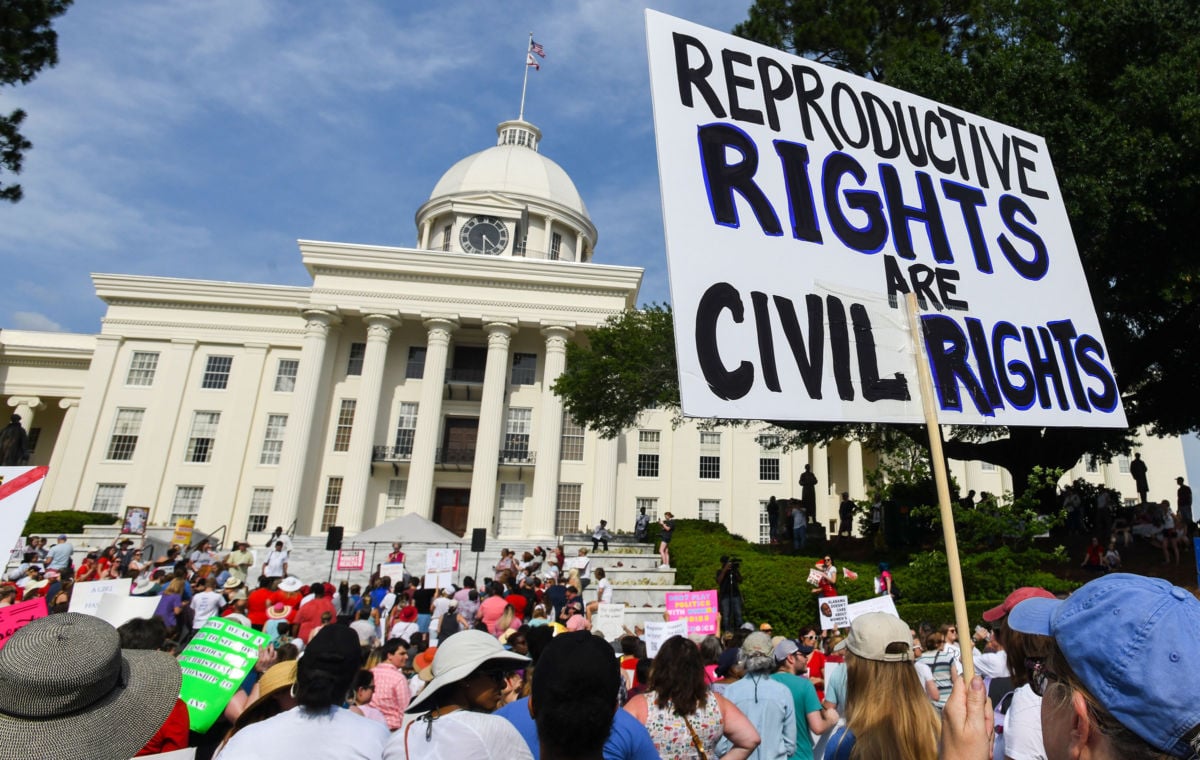Abortion continues to remain a highly contentious issue — but is it as contentious as we think it is? With the latest extreme abortion bans sweeping through state legislatures, polling on the actual issue of abortion varies wildly — often depending on who asks the questions, how those questions are framed and which outlet does the reporting.
The end result? A mishmash of results that are unreliable at best — and outright misleading at worst.
Take recent reporting on Fox News after the Alabama “no exceptions” total abortion ban passed. According to Raw Story, the news anchor leadingly asked Americans United for Life director Catherine Glenn Foster, “Why are the Democrats, why are the media, why are they hitting so hard against these states [passing abortion bans] when this is what the voters want?”
Of course, these measures aren’t what voters want. Fox is attempting to use the results from the 2018 Amendment 2 vote to claim Alabama voters want a total abortion ban with no exceptions — but the vote didn’t focus on an abortion ban, per se; it aimed to add “personhood” language to the state constitution. Even as legislators campaigned on the ballot initiative, voters were repeatedly reminded that as long as Roe v. Wade was in place, this would have no impact on legal abortion in Alabama.
How little does the Amendment 2 vote reflect what voters in Alabama really think about a total, no exceptions abortion ban? According to Vox.com, polling from 2018 shows that when asked about eliminating the ability to get an abortion in all cases, voter support dropped to just around 30 percent.
Vox explains:
Overall, however, the numbers reveal that while a majority of Alabamians do oppose abortion, most believe in a rape or incest exception at the very least (as do most Americans, as Vox’s Anna North explains). The plurality of respondents (29 percent) said abortion should be legal only in cases of rape, incest, or if the life of the woman is in danger; 20 percent said abortion should be legal in most cases, and 16 percent said that abortion should be legal in all cases. In other words, the poll found 65 percent of Alabamians think rape and incest victims should have access to abortion.
Opposition to so-called “heartbeat” bans, which ban abortion as early as two weeks after a missed period, is almost as unpopular. Or at least, it is once respondents are clear of exactly what the restrictions mean.
Amanda Michelle Gomez reports for ThinkProgress:
When [Kaiser Family Foundation] asked people whether they’d support their own state enacting a law like Ohio’s, the public is pretty divided. A larger share (50%) of the overall public said they supported the ban, whereas 44% said they opposed it. There is a pretty stark difference along party lines: 70% of Republicans support the ban; 27% of Democrats support the ban; and 53% of Independents support the ban. Republican women are more supportive (77%) of the ban than Republican men (64%).
But when people learn that “heartbeat” bans actually amount to outlawing abortion as early as six weeks into pregnancy, before many women and gender minorities know they are pregnant and so add up to a near-total ban, 12% changed their mind and said they opposed the restrictions.
Of course, that’s the exact reason why abortion opponents had been couching their bills in misleading language like “fetal heartbeat” — note, it’s not a heartbeat, but rather cardiac activity at six weeks, and it’s not even a fetus until 10 weeks of pregnancy — or “unborn pain” or “born alive infant” for so long.
Each of these labels is meant not just to evoke an emotional response, but also to muddy the waters on what the bills actually do and how early in gestation they go into effect.
Why haven’t we seen a full no-exceptions abortion ban before this? Because there’s absolutely no way to hide what the right has proposed and just how devastating it would be if enacted.
And as we’ve long seen both nationally and locally, when it comes to a complete ban with no exceptions, almost no one supports that sort of restriction — except for the very extremists that tend to propose it.
Join us in defending the truth before it’s too late
The future of independent journalism is uncertain, and the consequences of losing it are too grave to ignore. To ensure Truthout remains safe, strong, and free, we need to raise $31,000 in the next 48 hours. Every dollar raised goes directly toward the costs of producing news you can trust.
Please give what you can — because by supporting us with a tax-deductible donation, you’re not just preserving a source of news, you’re helping to safeguard what’s left of our democracy.
